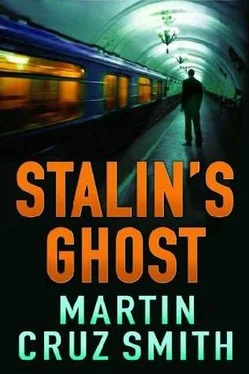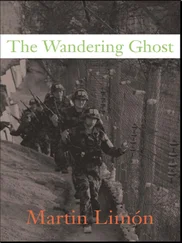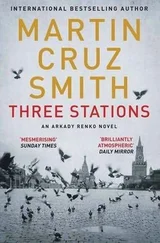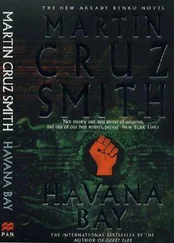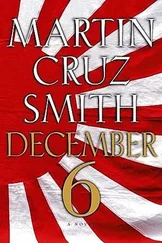Martin Smith - Stalin’s Ghost
Здесь есть возможность читать онлайн «Martin Smith - Stalin’s Ghost» весь текст электронной книги совершенно бесплатно (целиком полную версию без сокращений). В некоторых случаях можно слушать аудио, скачать через торрент в формате fb2 и присутствует краткое содержание. Жанр: Триллер, на английском языке. Описание произведения, (предисловие) а так же отзывы посетителей доступны на портале библиотеки ЛибКат.
- Название:Stalin’s Ghost
- Автор:
- Жанр:
- Год:неизвестен
- ISBN:нет данных
- Рейтинг книги:4 / 5. Голосов: 1
-
Избранное:Добавить в избранное
- Отзывы:
-
Ваша оценка:
- 80
- 1
- 2
- 3
- 4
- 5
Stalin’s Ghost: краткое содержание, описание и аннотация
Предлагаем к чтению аннотацию, описание, краткое содержание или предисловие (зависит от того, что написал сам автор книги «Stalin’s Ghost»). Если вы не нашли необходимую информацию о книге — напишите в комментариях, мы постараемся отыскать её.
Stalin’s Ghost — читать онлайн бесплатно полную книгу (весь текст) целиком
Ниже представлен текст книги, разбитый по страницам. Система сохранения места последней прочитанной страницы, позволяет с удобством читать онлайн бесплатно книгу «Stalin’s Ghost», без необходимости каждый раз заново искать на чём Вы остановились. Поставьте закладку, и сможете в любой момент перейти на страницу, на которой закончили чтение.
Интервал:
Закладка:
“My God!” The matchmaker looked around as if someone else might hear. “We don’t joke about such things. What an awful imagination.”
“It’s a curse.” He thought of Petya’s matchbook and decided to go for broke. “Have you ever heard of a gentlemen’s club called Tahiti?”
Ice formed on Tatiana’s gaze.
“Perhaps you should try another agency.”
While Arkady returned to his car, he called the Izvestia editorial office and was told that Ginsberg, the reporter who wrote the newspaper article about Isakov’s heroic OMON troops, was covering “the pizza trial,” the case of the ex-Black Beret who killed a pizza deliveryman. The trial was being heard in a new courthouse still under construction.
“How will I recognize Ginsberg?” Arkady asked.
“Unless there’s more than one hunchback there shouldn’t be any problem.”
8
Igor Borodin sat sweating in a cage of bulletproof glass. He had gone to fat since his OMON days, his suit stretched to the breaking point, and he had shaved badly. Winter sunlight sifted from high windows onto the emblem of a double eagle above the judge’s bench and filtered down to the jury box, the advocates’ tables and, separated by a wooden rail, the public. The colors were the pastels and wood tones of a Swedish kitchen and the smell of sawdust and plaster was a reminder that much of the courthouse was still under construction. Arkady tiptoed to the last available seat, next to an olive-skinned woman in a black dress and shawl. A row back a short man with a grizzled beard was making notes. Half of the public section was taken over by men in the blue and black camouflage suits of Black Berets, a corps of hard individuals whose faces expressed impatience with the judicial process. One man was missing an arm, another’s face was seared a slick violet and some simply had the hollowed-out look of war veterans. The room was overheated and most people held their coats on their laps; one of the Black Berets had opened his shirt enough to display the tattoo of an OMON tiger. Nikolai Isakov and Marat Urman had the place of honor in the front row. Isakov showed no reaction to the sight of Arkady, although Arkady had the impression of intense blue eyes watching through a mask. Urman saw Arkady and shook his head.
It was the second day of argument. The facts were that Makhmud Saidov, twenty-seven, married, with one child, had delivered a pizza to the apartment of Borodin, thirty-three, housepainter, divorced. Saidov expected a tip and was disappointed. While waiting for the elevator Saidov wondered aloud when Russians would learn that pizza deliverymen around the world depended on tips. Borodin reopened his door. Words were exchanged. Borodin left the door a second time, returned with his service pistol and shot Saidov fatally through the head.
The defense was that Saidov had verbally abused Borodin, a war veteran suffering from post-traumatic stress. While insults were not sufficient excuse for murder, they had triggered a reaction in Borodin that he had no control of. In fact, according to a psychiatrist, Borodin fired the gun in what he sincerely considered to be self-defense. He didn’t see a pizza deliveryman; he saw a terrorist who had to be stopped.
“But he was not a terrorist,” whispered the woman to Arkady. “My Makhmud was not a terrorist.”
Borodin took off his jacket. He was rapt, as if hearing a story new to him. From the public seats his old comrades sent him thumbs-up and the citizens in the jury box were thoroughly hooked. Juries were a reform urged by the West. Defense attorneys had always been supplicants, judges omnipotent and prosecutors ran the show. The show had a new audience now.
Borodin’s attorney called Isakov to the witness podium, established the detective’s illustrious record as a captain in the Black Berets and asked about Borodin’s. Isakov’s answer was not necessarily to the point, but it was effective.
“I was Sergeant Borodin’s commanding officer for ten months. In that time OMON spearheaded Russian forces in Chechnya, which meant constant engagement with rebels. Sometimes with four hours sleep out of forty-eight, sometimes so far ahead of logistical support that we went days without food, fighting an enemy that hid in the population and observed none of the rules of war. The enemy could be a hardened soldier, a religious fanatic or a woman transporting a bomb in a child’s stroller. We made friends where we could and tried to build lines of trust and communication with village elders; however, we learned from experience to trust no one except the men in our own unit. In ten months in those conditions, Borodin never failed to carry out an order. I can’t ask more from a man.”
Borodin sat up for the highest accolade in his life and opened his collar. At the base of his neck was a tattoo of the OMON shield. Arkady felt the dry swallowing of the veterans and the way they leaned forward to catch every word.
“He was involved in the famous Battle of Sunzha Bridge?”
“More a skirmish, I’d say, but yes, he was.”
“More than a skirmish, I’m sure. Could you recount for the judge and jury the events of that day?”
“Our assignment that day was to control and check traffic at the bridge. An attack in force was not anticipated and when we heard about the terrorist raid on the OMON field hospital it was too late to bring up reinforcements.”
“But you stood firm.”
“We carried out our orders.”
“Sergeant Borodin stood firm.”
“Yes.”
“Against odds of eight to one.”
“Yes.”
“In that fight, was there any communication between the terrorists and your men? Not radio communication, but shouts or insults.”
“Not from us. We were too few and didn’t want to give away our positions. The Chechens shouted a number of insults.”
“Such as?”
“‘Russians, you came a long way to die!’ ‘Ivan, who is seeing your wife?’ although they didn’t say ‘seeing.’ ‘Dogs will eat your bones.’ Things of that nature.”
“Again, how many terrorists were there?”
“Approximately fifty.”
“How many in your squad?”
“Six including me.”
“And including Borodin?”
“Certainly, Borodin too.”
“Under attack, outnumbered, with bullets flying, Igor Borodin heard, ‘Dogs will eat your bones.’ Is that correct?”
“Yes.”
“I refer to the transcript of the testimony of Borodin’s neighbors, who heard a heated argument on the landing and Makhmud Saidov shout, ‘May dogs eat your bones!’ At which point, Borodin snapped. He was again Sergeant Borodin back at the Sunzha River, protecting his country.”
The woman in the shawl turned her dark eyes to Arkady. She whispered, “And then he ate the pizza.”
Lunch break.
Ginsberg was a short, angular figure in a black coat and cap who walked with his huge head leading the rest of his body. Arkady followed him out of the courthouse and down a raw path between saplings with roots wrapped in burlap to a sidewalk ice cream cart. Up close, the reporter’s beard and brows were a disheveled gray, his eyes slightly scrambled and Arkady realized that the man was drunk. At noon. Arkady had a chocolate ice cream cone; Ginsberg had an orange popsicle and a cigarette. They ate as snow swirled around them, like a pair of Eskimos, Arkady thought.
Ginsberg said, “Give me fresh air, nicotine, sugar and artificial color. A cappuccino wouldn’t hurt. Although it is important to keep foam and artificial color out of the beard so as not to be too comical. What do you want, Investigator Renko?”
“A little information.”
“A little information is a dangerous thing.” Ginsberg slipped off the curb and would have fallen if Arkady hadn’t grabbed his sleeve.
Читать дальшеИнтервал:
Закладка:
Похожие книги на «Stalin’s Ghost»
Представляем Вашему вниманию похожие книги на «Stalin’s Ghost» списком для выбора. Мы отобрали схожую по названию и смыслу литературу в надежде предоставить читателям больше вариантов отыскать новые, интересные, ещё непрочитанные произведения.
Обсуждение, отзывы о книге «Stalin’s Ghost» и просто собственные мнения читателей. Оставьте ваши комментарии, напишите, что Вы думаете о произведении, его смысле или главных героях. Укажите что конкретно понравилось, а что нет, и почему Вы так считаете.
